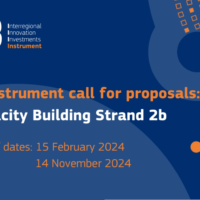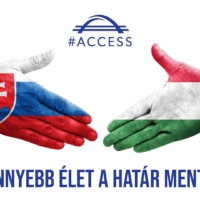CESCI’s director talked about cross-border legal accessibility at the EUSDR National Hearing
Knowledge sharing + Legal accessibility | 20 March 2024
Knowledge sharing + Legal accessibility | 20 March 2024
Mátyás Jaschitz, the director of the Central European Service for Cross-border Initiatives (CESCI) participated in this year’s EUSDR National Hearing, which took place on March 13, 2024, at the European Youth Centre Budapest. This year’s event, inspired by the Danube Youth Council’s recommendations, focused on a critical issue affecting not only Hungary but the entire Danube region: retaining populations (vital and shrinking spaces) and creating more liveable settlements to prevent the exodus of talent.
The annual EUSDR National Hearing aimed to involve domestic stakeholders in the implementation of the Danube Region Strategy, adopted during Hungary’s EU Presidency back in 2011, and to maintain regular dialogue. The 2024 hearing highlighted the phenomenon of “brain drain,” which impacts the economy, society, and the country’s long-term development. Solutions proposed included the development of more liveable settlements through coordinated measures and considering local conditions and needs. The event provided insights into experiences, opportunities, and ideas for creating sustainable and liveable settlements, showcasing projects and best practices for retaining talent.
Dr. Viktor György Oroszi, the national coordinator for the EUSDR, opened the hearing, which presented a broad range of perspectives on population retention in rural areas and improvements in the liveability of border regions. Presentations included an overview of the “Modern Cities and Hungarian Village Program” by ministerial commissioner Zoltán Bóna, research by the Balance Institute on future settlements, results from the Maltese Charity Service’s “Catching Up Villages” program, and CESCI’s work on improving accessibility to cross-border services through the #ACCESS project. Mátyás Jaschitz, the organisation’s director, detailed how the initiative tackles legal and administrative obstacles still hampering cross-border cooperation on the Hungarian-Slovakian border region. Additionally, the Hungarian members of the Danube Youth Council shared their experiences and recommendations, highlighting solutions to the “brain drain” issue.
This year’s National Hearing once again demonstrated the collaborative spirit within the Danube region, focusing on innovative approaches to tackle common challenges and enhance the quality of life across border communities. More information and the source of the photo can be found here.

 Watch the introductory short film of the ACCESS project!
Watch the introductory short film of the ACCESS project!